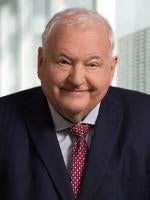Under the Affordable Care Act, there has been a constant discussion as to the lack of a sufficient number of health care professionals, particularly fully licensed physicians (M.D. or D.O.), to provide care to all of the individuals who will now have health insurance or who will be covered by the expanded Medicaid programs.
To respond to this, various states have taken different approaches. The most widely used approach has been to expand the scope of practice of limited licensed health care providers. An example of this has been the recent action of the State of California, which has expanded the scope of practice of pharmacists under a bill signed on October 1, 2013 by Governor Jerry Brown of California. This legislation (among other things) authorized pharmacists to administer drugs and routine vaccinations as well as order and interpret tests to monitor drug therapies.
In a news release, the California Pharmacist Association stated “With the implementation of the Affordable Care Act at a time when the number of primary-care physicians continues to shrink, we believe this legislation will help ensure that the millions of new patients who receive the insurance will be able to access health care services through their local pharmacists.”
This expansion of the scope of practice raises many questions. One of which is the malpractice standard to which the limited licensed individuals will be held when a legislature expands the scope of their privileges. Is it the same standard to which plenary licensed physicians are held? The second question raised will be whether or not the third party payors, including Medicare and Medicaid, will pay the expanded scope limited licensed professionals, the same reimbursement for those services as they reimburse for such services when provided by a fully licensed physician. Or will the third party payors initially start paying these limited licensed individuals a lower rate for the services, and subsequently consider that rate be the reasonable rate for the services, and pay that rate to the fully licensed physicians? Obviously, only time will tell. However, this must be considered, in light of the goal of the Affordable Care Act to attempt to control costs of health care services.
There will undoubtedly be many more of these statutes, expanding the scope of practice, in many, if not all, states, to be able to meet the needs of individuals who now have the financial ability to obtain health care services. The flip side of the analysis is that those who now obtain health care services through plenary licensed physicians, will more than likely be obtaining some of their health care services in the future, through limited licensed individuals. They may not have the same access to plenary licensed physicians for the provision of those services as they have had in the past.




 />i
/>i
